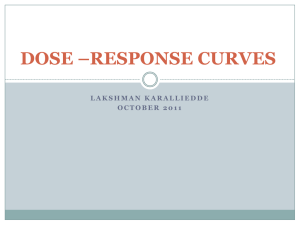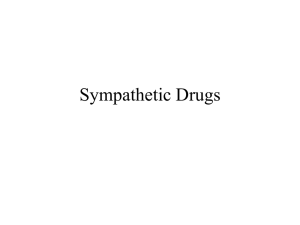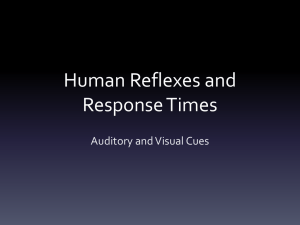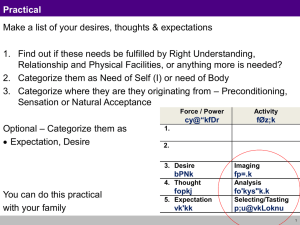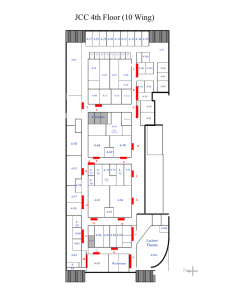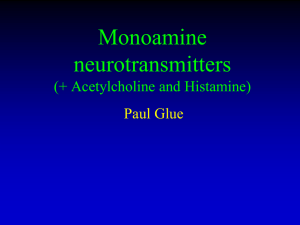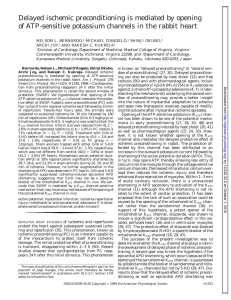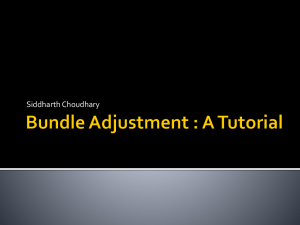ischaemic-preconditioning
advertisement
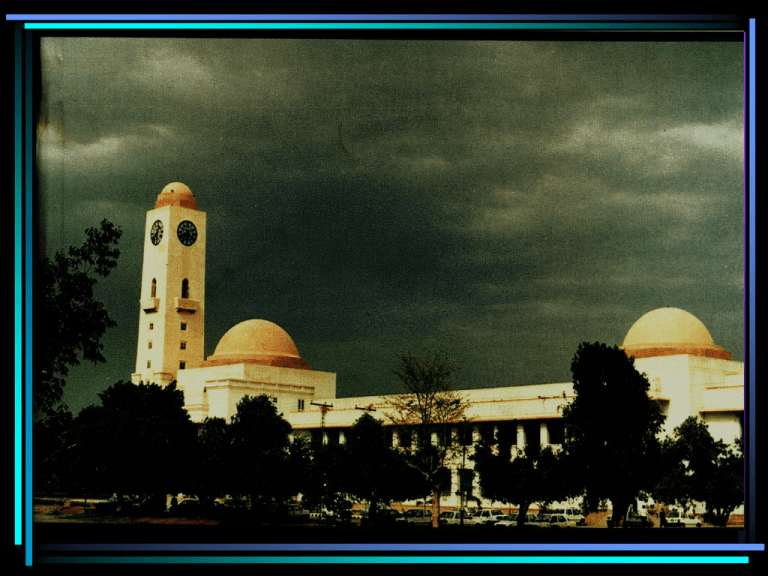
ISCHAEMIC PRE-CONDITIONING Prof. Mehdi Hasan Mumtaz MYOCARDIAL ISCHAEMIC PRE-CONDITIONING “Phenomenon by which a brief episod (s) of myocardial ischaemia increases the ability of te heart to tolerate a sbsequent prolonged period of ischaemia” ‘Murry et al’ HISTORY 1986 – Murry & colleagues. 1993 – Marber & colleagues. 1997 – Cason & colleagues. Kersten & colleagues. 1983-89 – Davis & colleagues. ENDPOINTS Reperfusion arrythmias. Slow energy metabolism. Improve post-ischaemic function. Protect coronary endothelium. Post-ischaemic tension in atrial trabeculae muscle. Resistance to hypoxic injury. TIME COURSE OF ISCHAEMIC PRECONDITIONING Important factors. Duration of ischaemia. Number of cycles. Duration of reperfusion. Types. Eary, classic. Lte, second window of protection. Delayed. TYPES EARLY Immediate Lasts 2-3h. LATE 12-24h. Lasts 72h. Dpendent on: Cardioprotective proteins. Protects against stunning ADDITIONAL STRESSFUL STIMULI IN ADDITION TO ISCHAEMIC Oxidative (hyperoxia). Mecanical (stretch). Electrical (rapid pacing). Thermal. Chemical (harmonal). Ionic (calcium). Pharmacological. CLASSIC/EARLY PRECONDITIONING Putative Mecanisms Opening of coronary colleterals. Induction of oxidants. Synthesis of protective proteins. Changes in mitochondrial ATPases. Not supported. PRECONDITIONING “Protection is receptor mediated” Objective Identification. Triggers. Tranducers. End effectors in myocytes. A. TRIGGERS – ISCHAEMIC PRECONTITIONG RECEPTOR DEPENDENT Adenosine. Opoid receptors. Bradykinin. Bristaglandins. Adrenergic, angiotension, endothelin receptors. Purine. Ach. RECEPTOR INDEPENDENT Nitric oxide. Free radicals. Calcium. ISCHAEMIC PRE-CONDITIONING B. MEDIATORS B-1 ATP sensitive K+ channels (K+ ATPS) B-2 Protein Kinase C (PKC) ISCHAEMIC PRECONTITIONG B. Mdiators B-1 K+ ATP Channels Sarcolemal “Blocked by” Salfonylurea S-hydroxydecanoate Mitochondrial “Opened by” Diazoxide. “Blocked by” 5HD ISCHAEMIC PRECONTITIONG B – Mediators. B-2 Protein Kinase C (PKC). 1. “Activator” Phorbol esters. 2. “Inhibitor” Polymyxin. Stanrosporin ISCHAEMIC PRECONTITIONG C. END EFFECTORS Sodium proton exchange. Energy demand. Cytoskeleton changes. Catbolite acumulation. TNF down regulation Lactate accumulation. Glycogen store. Intrcellular acidification. DELAYED PRE-CONDITIONING Complex polygemic phenomenon involving activation of several genes necessary for the synthesis of severe proteins and channels (K+ATD). DELAYED PRECONDITIONING Latent period 12-24h. Duration 72h. Cardioprotective proteins. Protects MI. Protects M. Stunning. STIMULI FOR DELAYED PRE-CONDITIONING Parmacological Endotoxins. Adenosine agonists Opioid agonists. TNF Non-Parmacological Ischaemia. Stress. Rapid ventricular pacing. Exercise Infarction. Stunning. Arrythmias. Endothelial dysfunction DELAYED PRE-CONDITIONING “MEDIATORS & END EFFECTORS” Related to changes in protein activity Heat stress proteins. HSP – 72. Antioxidant enzymes. (MnSod) NOS (cox – 2) Cytokine. DELAYED PRE-CONDITIONING Requires. Myocardial protein synthesis. Phosphorylation of transcription factors. NOS. SOD. Heat shock protein. Role of ROS. Role of NO. Selectivity Agonists Antagonists Sarcolemmal Long-chain CoA esters HMR-1098 P-1075 ADP Mitochondrial GTP ADP GDP Long-chain-CoA esters UDP 5-Hydroxydecanoate Superoxide anions Diazoxide Nicorandil BMS-191095 Non-selective Cromakalim ATP Bimakalim Glibenclamide Aprikalim Glyburide Diethylaminoethylbenzoate Pinacidil CLINICAL IMPLICATIONS Use of Nicorandil K+ATD. No donors. Sulfonylurea. COX-2. Cogeners of adenosine. Adenosis agonists. PKC agonists. ANAESTHETIC INDUCED PRECONDITIONING Anaesthetic drug MitochondrialKATP channel activity Sarcolemmal KATP channel activity Isoflurane Sevoflurane ? Desflurane Halothane ? Enflurane ? ? Nitrous oxide** ? ? Morphine ? Fentanyl ? Sufentanil ? ? Remifentanil ? ? Trichloroethanol (chloral hydrate, -chloralose) ? Ethanol Urethane ? ANAESTHETIC INDUCED PRECONDITIONING Volatile Anaesthetics Characteristics of preconditioning similar to those of ischaemic preconditioning” A1 adenosin receptor activation. KATP chanel activation. Reduce Ca++ loading. Augment post ischaemic contrctile responsiveness to Ca++. infarct size. Delayed preconditioning. Mitochondrial KATP channel activity Sarcolemmal KATP channel activity R-ketamine S-ketamine ? Propofol (#) (#) Etomidate ? Thiopental ? Midazolam ? Pentobarbital (used in the laboratory) Thiamylal (used in the laboratory) ? ? Anaesthetic drug Xylazine (used in the laboratory) EFFECT OF MEDICATION Preconditioning Preconditioning Adenosine receptor agonists Adenosine receptor antagonists Including nucleotide transporter inhibitors (acadesine, dipyridamol) Theophylline, aminophylline KATP channel openers KATP channel blockers (Nicorandil, diazoxide, cromakalim, levosimendan, minoxidil, benzocaine, pdiethylaminoethylbenzoate), including the uncoupler of oxidative phosphorylation: bupivacaine, ropivacaine, most NSAIDs Sulfonylurea agents, including antidiabetic drugs: glibenclamide, glyburide. Much less: glimepiride, and anticancer drugs (diarylsulfonylurea), lidocaine, mexiletine Opioid agonists (probably via) Opioid antagonists Morphine, pentazocine, fentanyl Naloxone ß-Adrenergic receptor agonists ß-Adrenergic receptor antagonists Isoproterenol, norepinephrine, epinephrine. Some ß-blockers with auxiliary effects may enhance preconditioning, such as carvedilol, nipradilol and nebivolol Including drugs which deplete myocardial tissue of catecholamines, such as reserpine EFFECT OF MEDICATION Preconditioning Preconditioning 1-Adrenergic receptor agonists 1-Adrenergic receptor antagonists Phentolamine Phenylephrine, norepinephrine M2-muscarinic receptor agonists Acetylcholine esterase inhibitors M2-muscarinic receptor antagonists Atropine Nitric oxide releasers Nitric oxide scavengers Nitroglycerin, nitroprusside, Larginine Vitamin E? Ca2+ Ca2+ channel blocker B2-bradykinin receptor agonists Angiotensin converting enzyme inhibitors: captopril, lisinopril, enalapril EFFECT OF MEDICATION Preconditioning Preconditioning AT1-receptor antagonists Statins Lovastatin, pravastatin, via activation of ecto-5'-nucleotidase Flumazenil Amrinone Digoxin Gadolinium Aprotinin COX-2 inhibitors Factors/disease states Ischaemic preconditioning Diabetes Anaesthetic preconditioning Medication Increased age Raised plasma cholesterol ? ? Coronary artery disease (ischaemic cardiac remodelling) ? Arterial hypertension (hypertrophic cardiac remodelling) ? ICU – NISHTAR HOSPITAL
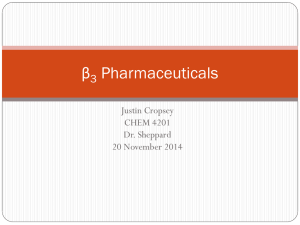
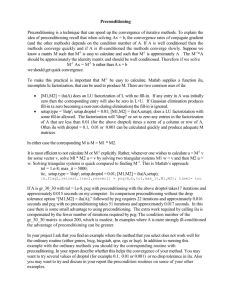
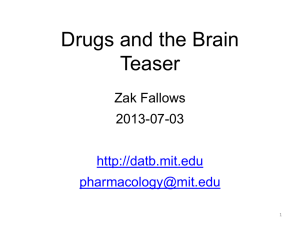
![Shark Electrosense: physiology and circuit model []](http://s2.studylib.net/store/data/005306781_1-34d5e86294a52e9275a69716495e2e51-300x300.png)
